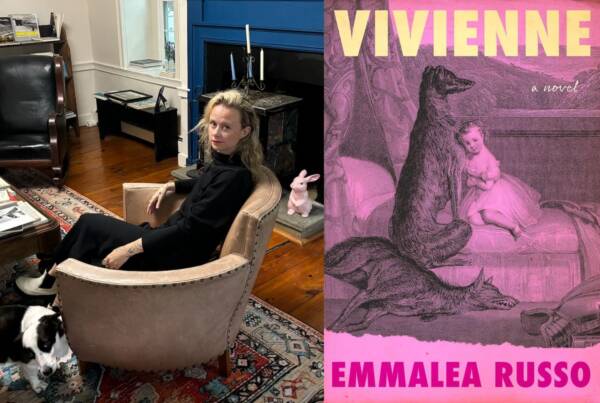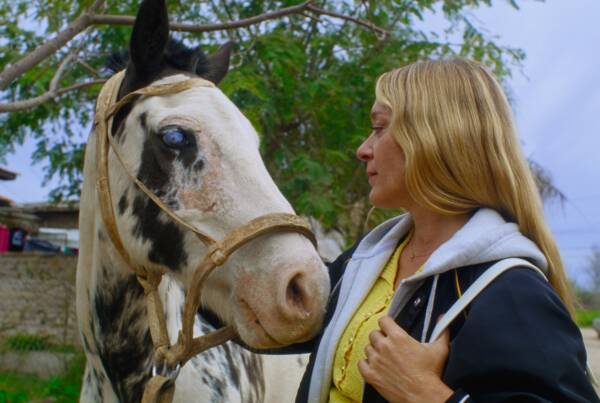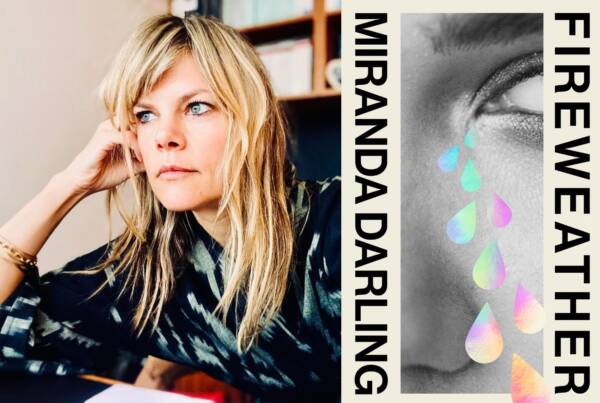Words by Freya Bennett
 Missy Higgins’ music was the soundtrack to my adolescence, her music shaping the emotional landscape of my youth in ways that still resonate today. I was 17 when The Sound of White was released, and like many young Australians, I was immediately captivated by Missy’s raw, honest music. It spoke to me in a way few artists could. I vividly remember long train rides from my house in The Dandenong Ranges to Melbourne City, where her songs cemented themselves in my heart and body. I leaned fully into my feelings, finding comfort in the unpolished emotions she so generously shared.
Missy Higgins’ music was the soundtrack to my adolescence, her music shaping the emotional landscape of my youth in ways that still resonate today. I was 17 when The Sound of White was released, and like many young Australians, I was immediately captivated by Missy’s raw, honest music. It spoke to me in a way few artists could. I vividly remember long train rides from my house in The Dandenong Ranges to Melbourne City, where her songs cemented themselves in my heart and body. I leaned fully into my feelings, finding comfort in the unpolished emotions she so generously shared.
Missy’s ability to write such deeply resonant songs is a rare talent, and her star shone brightly, pulling so many of us along for the ride. The gift of authenticity is something I will always be grateful for.
Though I’ve been a fan of all her albums, The Sound of White has always been my comfort album. Before diving into her new album, The Second Act, I wanted to revisit The Sound of White. I was surprised at how every lyric came back to me as if woven into the fabric of my being, I belted out The Special Two, The Sound of White, and, of course, Scar, much to the dismay of my six-year-old daughter (don’t worry, she has since come round, happily belting out Scar with me on the way to school).
Described by Missy as a “kind of sequel” to The Sound of White, The Second Act is immediately intimate, deeply personal, and reflective. The first track, You Should Run, is a stripped-down ballad that is emotional yet powerful and sets the tone for the rest of the album perfectly.
The energy shifts with track four Craters, a song brimming with dark humour, warmth, and a touch of country vibes. It injects a burst of energy into the album, showcasing Missy’s versatility and bringing a lively contrast to the more introspective opening. As the album progresses, she shares The In-Between, a resonant and relatable song that captures the complexity of life’s transitions, full of raw emotion and beauty.
The title track, The Second Act, is a tearjerker—an empowering, heart-swelling piece that encapsulates the album’s themes of growth and self-discovery. But if I had to choose a favourite, it would be Hush Now. I’m a sucker for lullaby-esque songs, and Missy’s voice in this track is so gentle and soft, yet also strong and confident. It feels like a calming tonic for my over active nervous system.
I was lucky enough to chat with Missy just before the release of The Second Act. In between a lunch break and a stolen moment while my baby napped, I started by asking Missy about her return to a more confessional style of songwriting, “I haven’t strayed too far away from confessional songwriting, I think for a while there in my 20s I was focused on other things.” she begins.
Her songs have always been a reflection of her life, and she shares, “Whenever I had something going on that I really needed to express, I expressed it.” But she notes that when it comes to deep inner turmoil and existential crises, “there are more similarities between this album and my first.”
“It’s always felt pretty gratifying to be vulnerable and confessional in my songs,” she explains, “I know deep down that makes the best art.” She adds that any pretence in these songs would have diminished their power and connection: “It’s like when you meet somebody and you both divulge something quite personal to each other; it immediately allows you to form a connection.” I wholeheartedly agree and we discuss breaking down barriers. I mention how she’s achieved this for so many people through this album, but especially resonating especially with women approaching middle age.
Missy co-produced The Second Act, writing and recording much of the album in her own home, mirroring the process of her debut album. “The songs were all written at home in my little study,” she explains, adding that the demos were sung quietly so as not to wake her sleeping children. “It created this really intimate feel, and I wanted to replicate that in the production.” As a result, Missy says she loves how the album “sounds like a place and sounds like that room.”
As a mother myself, navigating how creativity shifts and evolves, I’m curious how motherhood has influenced Missy’s music. “I think becoming a mum affects your entire life,” she says. “Because my songwriting is very reflective of my life, of where I’m at… in that respect, it was always going to affect the way I wrote.”
I ask if her kids are into her music, she smiles and shares “They both sing all the time,” adding that they’re curious about her lyrics. “They ask me what certain songs are about,” but mostly, “they’ve both got their playlists they’re obsessed with.” While her daughter now enjoys Missy’s music, her son insists it’s not his style. “I try not to take it personally,” she laughs.
I ask Missy how music helped her process her separation. “It’s always been a therapeutic thing for me, I guess,” she says. But as it was such a difficult experience to navigate, “I couldn’t write about it for about a year afterwards because it was all a little too confronting.” She explains, “I was still so immersed in it and the complication of it all.”
It wasn’t until she gained some distance from the situation that she felt ready to put her feelings into words. “I realised I was able to wrap some words around it,” she recalls, after writing her first song of the album, Story for the Ages. Missy discovered that her deepest grief stemmed from mourning the idea of the perfect, happy family. Through her writing, she processed the loss of “the story I had written for myself and the fact that it wasn’t panning out as planned.” Articulating that feeling was “really satisfying and felt like it had moved something inside me.” This unlocked the flow for more songs, helping her explore and understand other emotions through her music.
Missy reflects on touring her new songs before the album’s release: “Taking the album on the road for five months… has been really, really great,” she says. “Playing those songs to people every night and feeling the solidarity in the audience has been really lovely.”
When asked if she expected such a deep connection from her audience, she admits, “I wasn’t expecting it to feel like such a powerful moment. You can never really predict which songs will hit home, but with A Complicated Truth, every time I played it, there was audible sobbing in the audience. It was really lovely to know it was connecting with people and made me feel not so alone in the journey.”
I mention how amazing it is that her music helps people, and she reflects on how that wasn’t her intention. She was simply navigating her own challenges, but acknowledges, “it’s a really lovely byproduct of that.”
I wrap up by asking Missy what’s next as she begins a new chapter in her life. “I’ve never really been someone who has much of a plan for the future, to be honest,” she says with a smile. “I let the opportunities arise and try not to shy away from things that challenge me.” She shares how the process of writing her albums consumes her completely, describing it as a “birth, death, and rebirth kind of process.”
“I’ll ride this journey until it’s finished, then I’ve gotta disappear for a while,” she says, adding, “The next thing will happen when it happens.”
Missy Higgins’ sixth album The Second Act is out now. As for me, I’ll be taking some long walks, sunglasses on hand, ready for any feelings that might lead to public sobbing.






